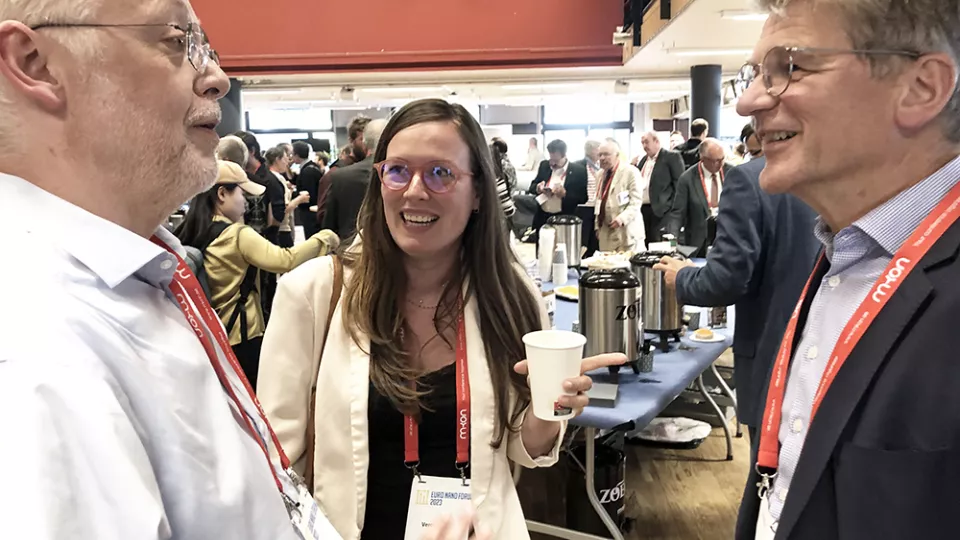Three days of setting new benchmarks for knowledge exchange and scientific progress – and a lot of curiousness and willingness to cooperate. The conference EuroNanoForum was bringing together scientists, innovators, and policymakers to discuss developments in nanotechnologies in an open forum.
Vice-Chancellor Erik Renström welcomed the participants to “very important days of interactions between industry, academia, policymakers, and interested stakeholders for advancing the area of nanotechnology and advanced materials”. He anticipated a new golden age for European technology development and innovation, in the spirit of the digital and green transition.
We have the means, we understand the challenges – and are ready to get to work.
Erik Renström spoke of the emerging Science Village where research facilities such as MAX IV and ESS are built and a new nanolab is planned.
“We have the means, we understand the challenges – and are ready to get to work. So just let’s do it!” he said.
Stefan Bengtsson, President of the Chalmers University of Technology, mentioned the importance of quantum computers and graphene, sustainable energy, and new diagnosis methods in the health industry. He also underlined the importance of research infrastructures and the significance of information communication technology, related to the European Chips Act .
“We need for Europe to step up in competence provisioning and in building capacities for the production of advanced electronics,” he said.
Resources are not infinite
Darja Isaksson, Director General of Vinnova, talked about hope in nanotechnologies and a need for science:
“Deadlines of the planets are not negotiable. We know that resources are not infinite. Researchers and entrepreneurs can together make impossible things possible.”
She noted that Europe now has the opportunity to build on the strengths of our research community, industry, and society as a whole.
“This is an opportunity for us to do what it takes, to pay it forward, to share insights and ideas, connect each other, build the eco system we need to make the necessary connections – listen, learn, and then: act.”
Mats Persson, the Swedish Minister of Education, expressed the hope that biotechnology research at the forefront will contribute to ensuring resilience, industrial competitiveness, and strategic autonomy in key areas for Europe.
“Global collaborations should be based on transparency, reciprocity, and security, and should safeguard academic freedom, integrity, and autonomy.
All sessions will be available to watch if you register here:
The conference webpage for EuroNanoForum2023


